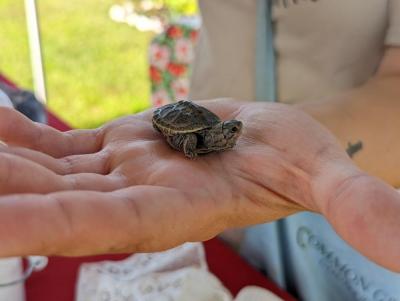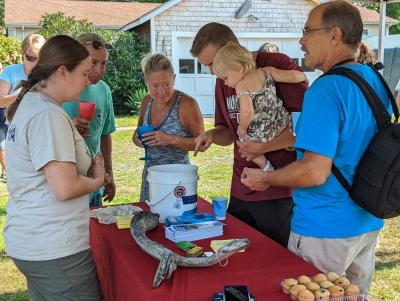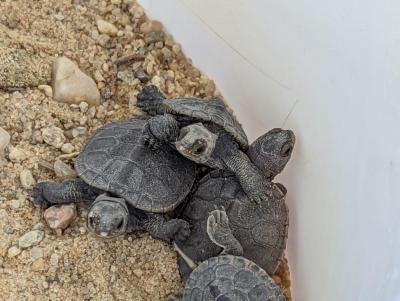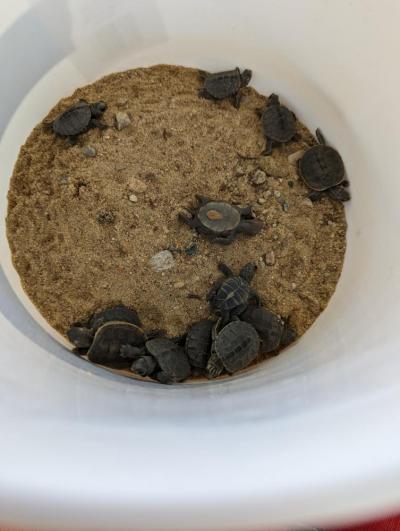Make way for terrapins: Baby turtles released at Briarwood Beach
Paper cups of mimosas in hand, Briarwood Beach residents walked across the grass on Saturday morning to peer into a white bucket sitting on a table in one of the residents’ backyards.
When they saw what was crawling inside, several gasped, mouths agape.
Baby diamondback terrapins, just a few weeks old, wriggled around a mound of sand inside the bucket, climbing over one another in vain attempts to leave their vessel. A few burrowed into the sand, their tiny legs flinging pebbles out of the way as they dug deeper.
The visitors were huddled around the bucket as part of an educational event organized by resident Pam Silver and the New England Coastal Wildlife Alliance.
Silver said she learned more about the terrapins after a female visited the beach in her backyard two years ago in an attempt to lay eggs. That’s when she called NECWA to report the turtle sighting.
Then last year, she began to get more involved after another terrapin arrived behind her house. She worked with the alliance to put together an educational event, inviting local residents over to learn about the terrapins and what to do when residents spot them or their babies.
“I just feel it’s a very important activity to do here,” Silver said during the second annual educational event on Saturday. “People need to understand what we have here.”
Director of the Southcoast Terrapin Project Dani Marston stood above the bucket, educating residents on the turtles’ biology and how the threatened species are preyed upon. A volunteer for the wildlife alliance, Marston spoke to the low number of terrapins that make it from birth to adulthood.
About 99% of the turtles are preyed upon within their nests after birth, Marston said, often by foxes or raccoons.
At Briarwood Beach this season, the alliance found around 120 terrapin nests, she said. Of those, volunteers were able to save turtles from about 20 nests. The bucket of turtles Marston had on Saturday represented about a dozen turtles from several of those nests, she said.
Later, Marston said she would be bringing the baby terrapins to different parts of the beach and putting them in the sand with some covering, so they have a chance to make their way in the world. The turtles will do their best to avoid getting eaten by diving into the mud and sand for the first few years, Marston said, a period sometimes called the “missing years,” as the turtles are hard to find again.
But on Saturday, residents had a front-row seat to the baby turtles before they were released into the wild again.



















